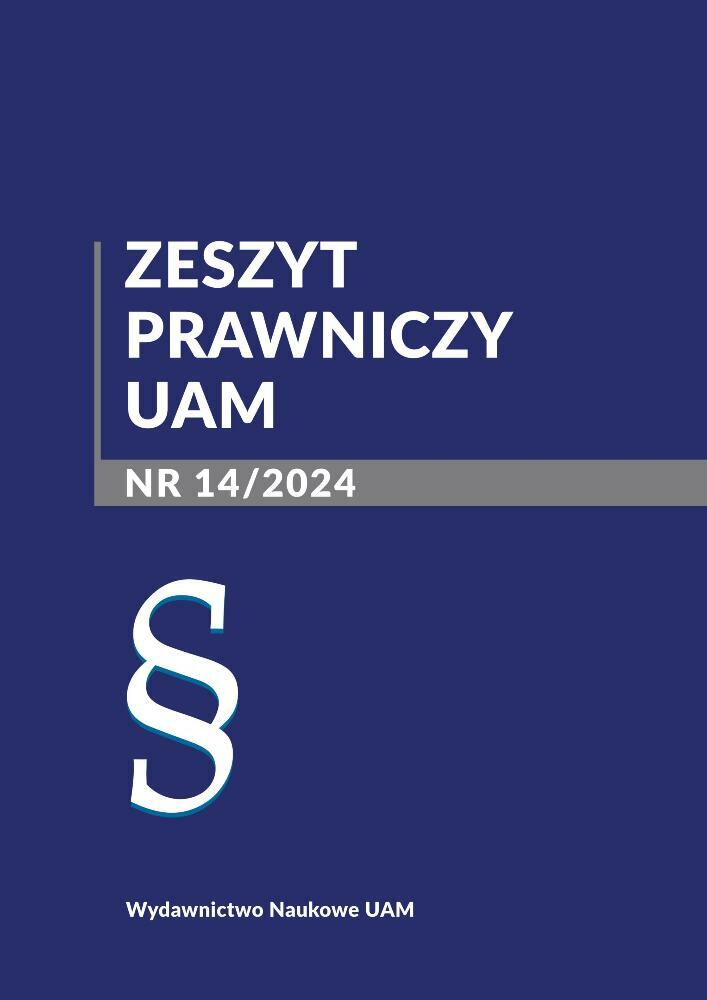Abstract
In the digital age, global disinformation campaigns are becoming a fundamental challenge that accompanies almost every conflict in international relations. The widespread adoption and development of such operations, especially those utilizing generative artificial intelligence, is inevitable. The article defines disinformation and locates it in the grid of near concepts. The author presents the ongoing conflict between the conduct of international actors and human rights, considering disinformation from the perspective of its adverse effects seen in their direct and indirect dimensions – through the consequences of the need to protect the national security of the targeted actors. Possible classification of the conduct of disinformation campaigns within the framework of public international law is also described and evaluated.
References
Arcos, R., Chiru, I., Ivan, C. (2023). Routledge Handbook of Disinformation and National Security, Abingdon, Oxon and New York, NY. DOI: https://doi.org/10.4324/9781003190363
Baade, B. (2018). Fake News and International Law. “European Journal of International Law” 29(4): 1357–1376. DOI: https://doi.org/10.1093/ejil/chy071
Colomina, C., Sánchez Margalef H., Youngs R. (2022). The Impact of Disinformation on Democratic Processes and Human Rights in the World. Brussels.
Craig, P.P., de Búrca G. (2022). EU Law: Text, Cases, and Materials. New York.
Crawford, J. (2013). State Responsibility: The General Part. Cambridge. DOI: https://doi.org/10.1017/CBO9781139033060
De Brabandere, E. (2019). Propaganda, [in:] A. Peters and R. Wolfrum (eds.), The Max Planck Encyclopedia of Public International Law. Oxford.
Espaliú-Berdud, C. (2023). Use of Disinformation as a Weapon in Contemporary International Relations: Accountability for Russian Actions against States and International Organizations, “El Profesional de la información” 32(4). DOI: https://doi.org/10.3145/epi.2023.jul.02
Hijmans, H. (2016). The European Union as Guardian of Internet Privacy: The Story of Art 16 TFEU. Brussels. DOI: https://doi.org/10.1007/978-3-319-34090-6
van Hoboken, J., Fathaigh, R.Ó. (2021). Regulating Disinformation in Europe: Implications for Speech and Privacy. “UC Irvine Journal of International, Transnational, and Comparative Law” 6: 9–36.
Kulesza, J. (2024). Human Rights and Social Media: Challenges and Opportunities for Human Rights Education, [in:] A. Mihr, C. Pierobon (eds.), Polarization, Shifting Borders and Liquid Governance. Cham: 139–154. DOI: https://doi.org/10.1007/978-3-031-44584-2_8
Lahmann, H. (2022). Infecting the Mind: Establishing Responsibility for Transboundary Disinformation, “European Journal of International Law” 33(2): 411–440. DOI: https://doi.org/10.1093/ejil/chac023
O’Shaughnessy, N.J. (2020). From Disinformation to Fake News: Forwards into the Past, [in:] P. Baines, N.J. O’Shaughnessy, N. Snow (eds.), The SAGE Handbook of Propaganda. London: 55–70. DOI: https://doi.org/10.4135/9781526477170.n5
Pentney, K. (2024). The Right of Access to ‘Reliable’ Information Under Article 10 ECHR: From Meagre Beginnings to New Frontiers. “European Convention on Human Rights Law Review” 5(2): 230–267. DOI: https://doi.org/10.1163/26663236-bja10093
Porcedda, M.G. (2023). Cybersecurity, Privacy and Data Protection in EU Law: A Law, Policy and Technology Analysis. Oxford and New York. DOI: https://doi.org/10.5040/9781509939428
Schmitt, M.N. (2018). “Virtual” Disenfranchisement: Cyber Election Meddling in the Grey Zones of International Law. “Chicago Journal of International Law” 19(1): 30–67.
Schmitt, M.N. (2018). Tallinn Manual 2.0 on the International Law Applicable to Cyber Operations. Cambridge. DOI: https://doi.org/10.1017/9781316822524
Stasi, M.L., Parcu, P.L. (2021). Disinformation and Misinformation: The EU Response, [in:] P.L. Parcu, E. Brogi (eds.), Research Handbook on EU Media Law and Policy. Cheltenham: 407–426. DOI: https://doi.org/10.4337/9781786439338.00030
License
Copyright (c) 2024 Jakub Kowalewski

This work is licensed under a Creative Commons Attribution 4.0 International License.

